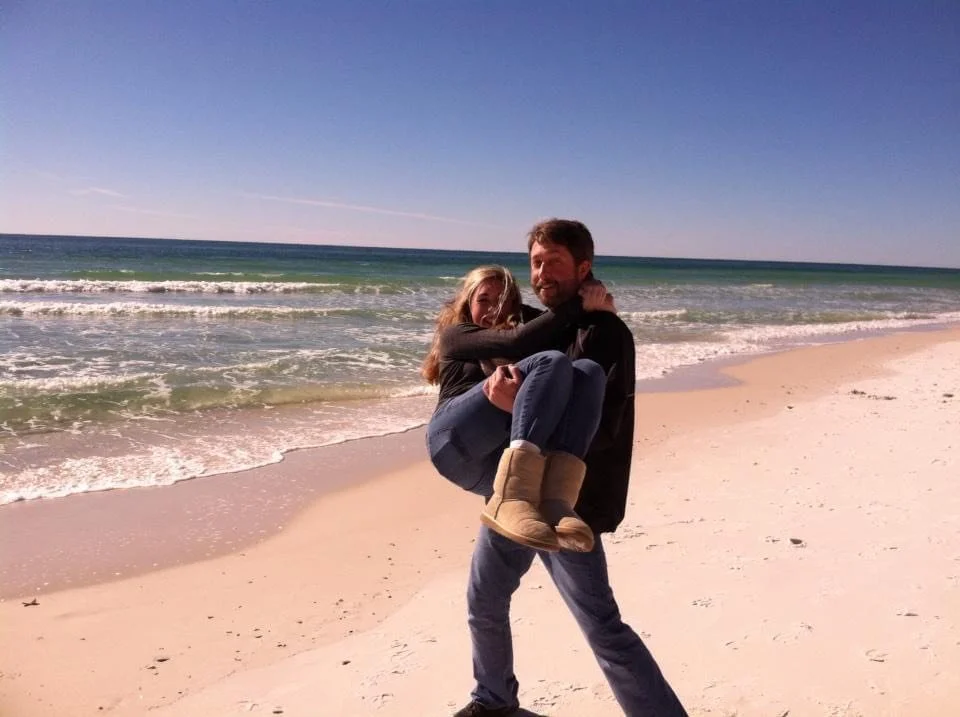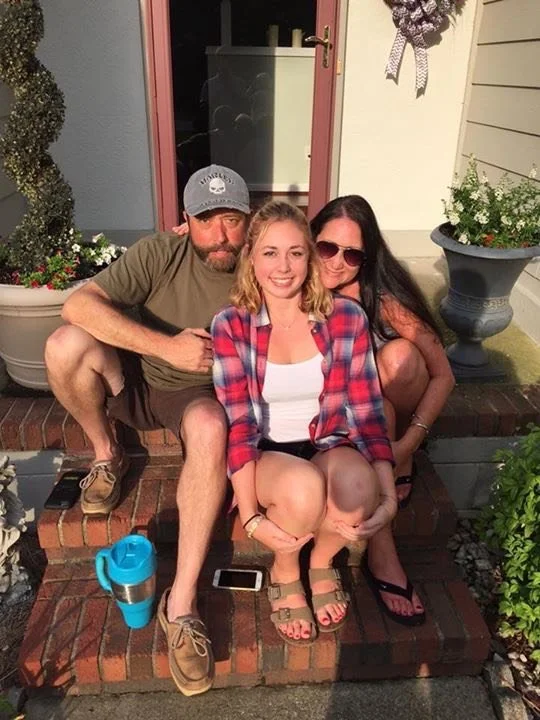What I learned by Kaitlyn Carpenter
I had never imagined at the age of 27 I would become a caregiver for one of my parents.
My father was diagnosed with GBM in February of 2023 while living with his symptoms just shy of a year. It felt as if it was a lifetime in itself. Those months contained many tears, laughs, doctor visits, problem solving, reminiscing, and advocating. As a healthcare provider myself, I know caregivers carry the world on their shoulders. The roles then reversed and I found myself sitting on the other side with my family. I gained perspective and learned things along the way on this journey with my dad. I am still navigating what we went through and the aftermath of his passing but I hope my sharing is helpful to a fellow caregiver, friends and family, or even the individual who is carrying an illness.
Take advantage of resources, especially therapy. I found myself in a situation not many people my age have to face. This took a toll on my mental health and I decided to seek out help. I learned some great strategies to work through the hard stuff and found comfort in knowing I had time carved out for myself to unload my thoughts. Hospice and some medical providers make this easily available to caregivers as they are just as much there for you as they are for your loved one.
Not everyone copes with a situation the same way you do. You have to respect that everyone goes at their own pace and finds comfort in other ways than yourself. This also means we all grieve differently. The stages of grief are nothing linear. The best thing you can do is support them and go at their pace while utilizing your own strategies.
Do not be afraid to call on friends and family for help. A caregiver can find their loved one to be quite dependent upon them and we are not superhuman. Do not be shy to take someone up on their offer to bring over dinner, help clean the house, or pick up groceries. People are truly there to help so do not feel awkward or overstepping. Let them take something off your plate.
Do not always shy away from sharing your story. This is definitely based on everyone’s comfort level. I tend to be an open book and felt okay in sharing what my family was going through. When doing this, I was able to connect with others and hear similar stories. I had opportunities to meet others affected by GBM, planned and unplanned, and it felt good to find people in your specific community.
Take pictures and videos. Someone once gave me this advice and I took it. I am able to look back on the good times during all this and have a timeline of the journey. We are fortunate to have technology and can access memories in an instant. This sometimes brings comfort on those days you need a laugh or are missing them a little extra.
It is okay to take time for yourself. I struggled with this quite often. I second guessed myself when scheduling a weekend trip or if I missed any major appointments my dad had. I felt like it was my duty to be readily available at all times and felt guilty if I was doing something enjoyable. Everyone deserves a break, even if it is to take an hour to get a massage or go for a walk. You cannot help someone if you do not take care of yourself.
Your health should not be put on hold. I let a lot of my own health take a back burner while focusing on my dad. Once again, you cannot help someone if you do not take care of yourself. Please, go ahead and make that doctor appointment you’ve been putting off!
Discuss with your loved one their long term wishes and plan for estate. Someone’s health can change in an instant and you may find yourself unsure of what your loved one wants or how to handle certain situations. This may include funeral details, finances, access to important accounts, big health decisions, ect. You do not want the added stress of making decisions on your own or the worry if you did the right thing. These are hard and sensitive topics but should be sorted sooner rather than later.
Do not be afraid to advocate for your loved one and yourself. Seeing new healthcare providers can almost be like going on a blind date. Sometimes they are not the right fit and you might be dreading that second date. Remember, you can always get a second opinion or look for a healthcare provider you connect with. A strong relationship with your healthcare team is important and can make all the difference. We were so fortunate to meet some amazing people who went above and beyond in the care they give. This made the hard days a little bit better.
Be present and cherish time with your loved one. It can feel like every day is a challenge and it is easy to let it make an impact on you. But one day you will reflect on the good, and even bad times with a smile. So soak up your time together and hold on tight.
My dad passed away in October 2023 surrounded by his loved ones. This is still all too fresh and we are all navigating the worst part of being a caregiver, where you are no longer needed for that role. My family and myself continue to carry his memory and honor him in any way we can. I hope our story and experiences can help others in the same situation.
Cancer SUCKS.
Connect and learn more about my dad at cancerhasjimmy.com and on socials.



